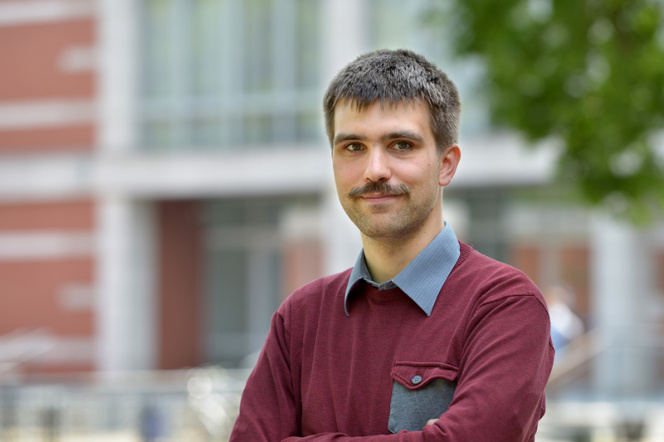Date added: 2021-05-31
The project Magnetic properties of selected oxide compounds containing transition metals

The research work of dr Michał Winiarski concentrates on synthesis and characterization of new materials hosting strongly correlated electron systems, such as superconductors and magnets.
The aim of the project Magnetic properties of selected oxide compounds containing transition metals is to obtain a number of compounds containing, among others, copper and cobalt ions, and study their physical properties.
A significant part of materials aimed to be studied are synthetical analogues of minerals, including ones found at volcanic exhalations (fumaroles).
Complicated relationships between chemical composition, magnetic interactions, and crystal lattice distortions occur in these materials, leading to exotic magnetic properties. The project aims at describing these relationships in detail.
The synthesis of materials samples will be addressed by various methods, ranging from the classical solid state reaction at high temperatures, through hydrothermal reactions employing pressurized water heated above 100°C, to vapor phase crystal growth using a gradient furnace.
The study of these exotic magnetic systems is motivated by the search for materials suitable for building parts of future quantum computers.
To build a viable quantum computer, one needs a material in which the quantum state has a direct, easily measurable relationship with some macroscopic property, such as magnetic susceptibility. One kind of such systems is the so called quantum spin liquid (QSL) - an exotic magnetic state where the magnetic structure is fluctuating even at the absolute zero temperature due to quantum effects. The QSL state can arise in materials with strong magnetic frustration. This effect results from a competition of magnetic interaction between neighboring spins enforced by system geometry.
The QSL-hosting materials are proposed to be suitable for creating qubits and memory elements for quantum computers.
The research is conducted in collaboration with scientist at the Johns Hopkins University in Baltimore, MD, USA and Clemson University in Clemson, SC, USA (grupa prof. Thao Tran https://www.clemson.edu/science/departments/chemistry/people/faculty/Tran.html)
46 views
See more
-
2026-03-04
Summer school in Frugal Design 2026



